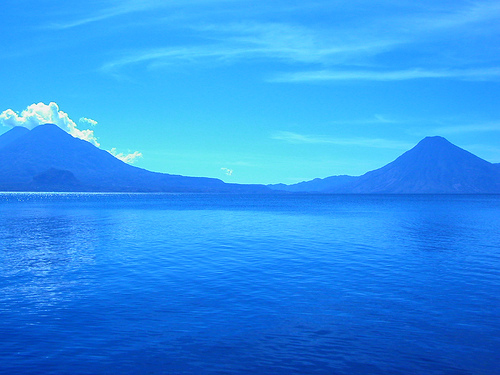
The narrative surrounding Nintendo over the last half decade has been one of innovation, as the company’s "blue ocean strategy" has led to pioneering new technologies. The concept of the blue ocean comes from a book by W. Chan Kim and Renée Mauborgne, which argues that rather than fighting over the same piece of the marketplace (creating a "red ocean" of blood), companies should strike out into the "blue ocean," where no other competitors set sail, and create new, uncontested markets for themselves.
With the Wii (and DS) Nintendo tapped into this strategy with amazing success. PlayStation Move and the Xbox 360 Kinect are nothing if not Sony and Microsoft's attempts to spill some blood into the waters of motion-control gaming. It’s been exciting to see Nintendo, one of the founders of modern video-game culture, raising the bar and not resting on its laurels, but sometimes it’s beneficial to recognize trends and fall into line. Video games and gaming platforms are moving steadily further into the realm of online connectivity, and Nintendo is not keeping up.
While Microsoft led the way with Xbox Live, and Sony has attempted to keep up with PlayStation Home and has now embraced Steam, Nintendo‘s online community is somewhere between truncated and nonexistent. I never read about it in the press, except as an object of derision. I never hear about it from friends.

The 3DS took some steps in the direction of connectivity with StreetPass and SpotPass, which link to other, nearby 3DS systems and Wi-Fi hotspots to share and download content respectively, but it’s a closed system. I’ve been reading comments from other journalists about the lack of activity on their 3DS systems from either of these “-Pass” programs. That’s not a statement of failure in my mind — not yet, anyway, as the 3DS needs more time to penetrate the market — but a suggestion of limitation. Unless you have other 3DSes around you, or the right hotspots, you’re not really online with the system in any meaningful way.
Talking about the competition that Nintendo faces from iOS devices is becoming old hat, but the avalanche of cheap mobile games isn't the real problem: I think it’s this issue of connectivity that might be the logjam Nintendo needs to clear. When I have my iPhone with me, I also have my Gmail, Twitter, and Facebook. I can text my friends. I have YouTube. I’m hooked straight into the web and all its networking wonders.
A 3DS gives me…a way to talk to other 3DS systems. And eventually, some sort of web browser to download. The 3DS may very well feature Facebook and Twitter apps in the future. I’m not discounting the possibility, but the fact that they weren’t built in from the get-go suggests that Nintendo still doesn't fully understand what true connectivity means.

Nintendo needs to pick up the slack on its home console platforms as well. The WiiSpeak peripheral tied into very few games and was recently discontinued due to weak sales. We’re beginning to get details now about the new Nintendo console, dubbed Project Café, but I don't care about 6.2-inch touchscreens, built-in cameras, and dual-analog stick controllers. It's just more hardware fetishism, and we see what that's gotten us with the 3DS — a shine that rubs off far too quickly.
I want to hear about Nintendo's plans for online play and social tools. I prefer my Xbox 360 less for the software and more for the fact that I constantly have a multitude of friends online that I can virtually hang out with. The Wii is a social dead zone unless I actually have other people in the room with me, so usually it collects dust in the corner, begging me to unplug it rather than keep looking at the annoying, flashing blue light indicating that I have a system update to download.
It’s too late for the 3DS to compete with the other handheld devices already taking up my pocket real estate, but Nintendo’s new home console could become part of my standard rotation if it finally joins the rest of the industry and easily allows us to play online. It’s brilliant to seek out the seas in which no one else sails and make them your own, but that doesn’t mean one also has to ignore what’s going on in the rest of the ocean.
Dennis Scimeca is a freelance writer from Boston, MA who has contributed to Gamasutra, GamePro, The Escapist, G4, Joystick Division, and @Gamer magazine, and maintains a blog at punchingsnakes.com. Follow him on Twitter: @DennisScimeca.


